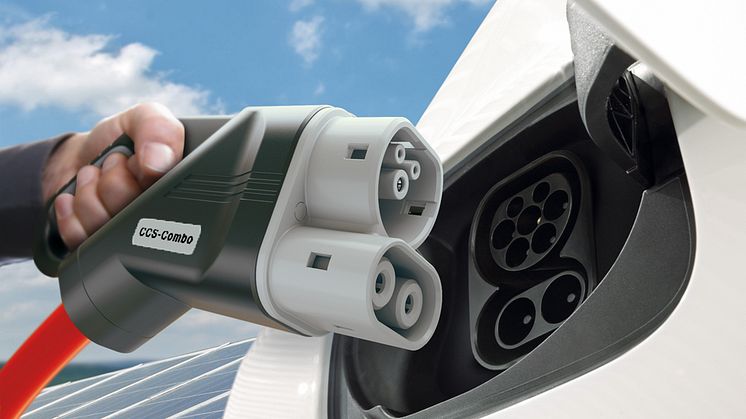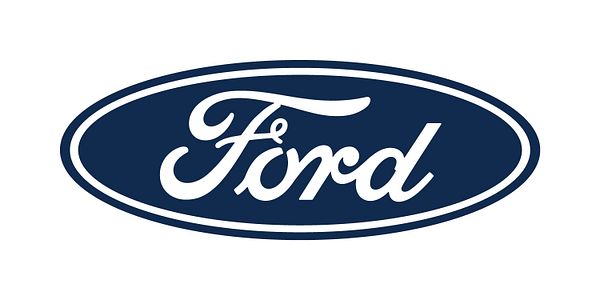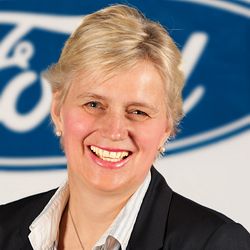
Pressemelding -
BMW-gruppen, Daimler AG, Ford Motor Company og Volkswagen-gruppen med Audi og Porsche planlegger et samarbeid for lynrask, kraftig hurtiglading langs Europas motorveier
BMW-gruppen, Daimler AG, Ford Motor Company og Volkswagen-konsernet med Audi og Porsche har signert en intensjonsavtale om å bygge det største nettverket av hurtigladestasjoner i Europa. Målet er en rask utbygging av et betydelig antall stasjoner som gjør det mulig å foreta lengre reiser i elektriske biler. Dette vil være et viktig skritt på veien mot et massemarked for elektriske biler.
Det prosjekterte, lynraske ladenettverket, med effektnivåer opp til 350 kW, vil tilby betydelig raskere lading enn dagens ladesystemer. Byggingen er planlagt å starte i 2017. Et første mål er å få ca. 400 ladestasjoner i Europa. Innen 2020 skal kundene ha tilgang til tusenvis av de kraftige ladestasjonene.
Målet er å gjøre langkjøring med elektriske biler mulig gjennom et åpent ladenettverk langs motorveier og store gjennomfartsårer. På sikt er målet at det skal være like praktisk å lade en el-bil som å fylle drivstoff på en bensinstasjon.
Nettverket skal bygges på standarden CCS (Combined Charging System). Den planlagte ladestrukturen skal utvikle den eksisterende standarden for AC- og DC-lading av el-biler til et forbedret nivå av DC hurtiglading opp til 350 kW. Elektriske biler som er bygget for å godta den fulle effekten kan - uavhengig av merke - lade til en brøkdel av den tiden det tar i dag. Nettverket er ment å betjene alle CCS-utstyrte biler for å lette introduksjonen av elektriske biler i Europa.
BMW-gruppen:
- Dette høyeffekt-ladenettet gir bilister et sterkt argument for å bevege seg mot elektrisk mobilitet, sier Harald Krügerm styreleder i BMW AG. - BMW-gruppen har satt i gang en rekke offentlige lade-infrastrukturprosjekter i løpet av de siste årene. Fellesprosjektet er en milepæl som demonstrerer at konkurrenter kombinerer sine krefter for å øke mobilitet med elektriske kjøretøy.
Daimler AG:
- For å få til et gjennombrudd for mobilitet med elektriske kjøretøy kreves det to ting: overbevisende biler og en omfattende ladeinfrastruktur. Med vårt nye varemerke EQ lanserer vi vår nye elektriske produktoffensiv. Innen 2025 skal vi ha mer enn 10 helelektriske personbiler tilgjengelig. Sammen med våre partnere lager vi nå den kraftigste ladeinfrastrukturen i Europa, sier Dr. Dieter Zetsche, styreformann i Daimer AG og sjef for Mercedes-Benz Cars. Tilgjengeligheten av kraftige ladestasjoner vil gjøre det mulig å kjøre langt med el-bil for første gang og vil overbevise nye kundegrupper om å velge en elektrisk bil.
Porsche AG:
- Det er to avgjørende aspekter for oss: lynrask lading og rett plassering av ladestasjonene, sier leder av styret i Porsche AG, Oliver Blume. - Sammen gjør disse to faktorene oss i stand til å reise i helelektriske biler på lik måte som i en bil med forbrenningsmotor. Som bilprodusent vil vi aktivt forme vår fremtid, ikke bare ved å utvikle helelektriske biler, men ved også å bygge opp den nødvendige infrastrukturen.
Audi AG:
- Vi ønsker å etablere et nettverk som gjør at våre kunder på lange turer skal kunne bruke en kaffestopp til å lade, sier Rupert Stadler, styreleder i Audi AG. - Pålitelige og raske ladetjenester er en nøkkelfaktor for å få sjåfører til å velge en elektrisk bil. Med dette samarbeidet ønsker vi å få en økt og bredere markedsadopsjon av mobilitet med elektriske biler og fremskynde skiftet til utslippsfri kjøring.
Ford Motor Company:
- En pålitelig og lynrask infrastruktur for lading er viktig for massemarkedets aksept og har potensiale til å forvandle muligheten for kjøring med elektriske biler, sier toppsjefen i Ford Motor Company, Mark Fields. - Ford har forpliktet seg til å utvikle kjøretøy og teknologier som gjør folks liv enklere. Dette ladenettverket vil gjøre det enklere og mer praktisk for kunder i hele Europa å eie en elektrisk bil.
Bilprodusentene planlegger betydelige investeringer for å etablere dette nettverket. Dette understreker også selskapenes tro på elektrisk mobilitet. Partnerne BMW Group, Daimler AG, Ford Motor Company og Volkswagen-gruppen vil være likeverdige i et joint venture samarbeid. Andre bilmerker vil også bli oppfordret til å delta i nettverket for å bidra til å etablere praktiske ladeløsninger for elektriske biler. Partnerne har også til hensikt å samarbeide med regionale partnere for å sikre at nettverket raskt blir en realitet.
Emner
Contact
| | | | | | | |
About AUDI AG
The Audi Group, with its brands Audi, Ducati and Lamborghini, is one of the most successful manufacturers of automobiles and motorcycles in the premium segment. It is present in more than 100 markets worldwide and produces at 16 locations in twelve countries. In the second half of 2016, the production of the Audi Q5 will start in San José Chiapa (Mexico). 100‑percent subsidiaries of AUDI AG include quattro GmbH (Neckarsulm), Automobili Lamborghini S.p.A. (Sant’Agata Bolognese, Italy) and Ducati Motor Holding S.p.A. (Bologna, Italy). In 2015, the Audi Group delivered to customers approximately 1.8 million automobiles of the Audi brand, 3,245 sports cars of the Lamborghini brand and about 54,800 motorcycles of the Ducati brand. In the 2015 financial year, the Audi Group achieved total revenue of €58.4 billion and an operating profit of €4.8 billion. At present, approximately 85,000 people work for the company all over the world, about 60,000 of them in Germany. Audi focuses on new products and sustainable technologies for the future of mobility.
About BMW Group
With its three brands BMW, MINI and Rolls-Royce, the BMW Group is the world’s leading premium manufacturer of automobiles and motorcycles and also provides premium financial and mobility services. As a global company, the BMW Group operates 31 production and assembly facilities in 14 countries and has a global sales network in more than 140 countries. In 2015, the BMW Group sold approximately 2.247 million cars and nearly 137,000 motorcycles worldwide. The profit before tax for the financial year 2015 was approximately € 9.22 billion on revenues amounting to € 92.18 billion. As of 31 December 2015, the BMW Group had a workforce of 122,244 employees. The success of the BMW Group has always been based on long-term thinking and responsible action. The company has therefore established ecological and social sustainability throughout the value chain, comprehensive product responsibility and a clear commitment to conserving resources as an integral part of its strategy.
About Daimler AG
Daimler AG is one of the world’s most successful automotive companies. With its divisions Mercedes-Benz Cars, Daimler Trucks, Mercedes-Benz Vans, Daimler Buses and Daimler Financial Services, the Daimler Group
is one of the biggest producers of premium cars and the world’s biggest manufacturer of commercial vehicles with a global reach. Daimler Financial Services provides financing, leasing, fleet management, insurance, financial investments, credit cards, and innovative mobility services. The company’s founders, Gottlieb Daimler and Carl Benz, made history with the invention of the automobile in the year 1886. As a pioneer of automotive engineering, Daimler continues to shape the future of mobility today: The Group’s focus is on innovative and green technologies as well as on safe and superior automobiles that appeal and fascinate. Daimler consequently invests in the development of alternative drive trains with the long-term goal of emission-free driving: from hybrid vehicles to electric vehicles powered by battery or fuel cell. Furthermore, the company follows a consistent path towards accident-free driving and intelligent connectivity all the way to autonomous driving. This is just one example of how Daimler willingly accepts the challenge of meeting its responsibility towards society and the environment.Daimler sells its vehicles and services in nearly all the countries of the world and has production facilities in Europe, North and South America, Asia, and Africa. Its current brand portfolio includes, in addition to the world’s most valuable premium automotive brand, Mercedes-Benz, as well as Mercedes-AMG, Mercedes-Maybach and Mercedes me, the brands smart, Freightliner, Western Star, BharatBenz, FUSO, Setra and Thomas Built Buses, and Daimler Financial Services’ brands: Mercedes-Benz Bank, Mercedes-Benz Financial, Daimler Truck Financial, moovel, car2go and mytaxi. The company is listed on the stock exchanges of Frankfurt and Stuttgart (stock exchange symbol DAI). In 2015, the Group sold around 2.9 million vehicles and employed a workforce of 284,015 people; revenue totalled €149.5 billion and EBIT amounted to €13.2 billion.
About Ford Motor Company
Ford Motor Company is a global automotive and mobility company based in Dearborn, Michigan. With about 203,000 employees and 62 plants worldwide, the company’s core business includes designing, manufacturing, marketing and servicing a full line of Ford cars, trucks and SUVs, as well as Lincoln luxury vehicles. To expand its business model, Ford is aggressively pursuing emerging opportunities with investments in electrification, autonomy and mobility. Ford provides financial services through Ford Motor Credit Company.
About Porsche AG
Dr. Ing. h.c. F. Porsche AG, with headquarters in Stuttgart-Zuffenhausen, is the world's most successful sports car manufacturer. In 2015, Porsche delivered more than 225,000 vehicles of the 911, Cayenne, Macan, Panamera, Boxster and Cayman models to customers worldwide. That was 19 per cent more than in 2014. The sports car manufacturer's 2015 operating profit amounted to 3.4 billion euros, up 25 percent from the previous year's figure. This makes Porsche one of the most profitable carmakers in the world. Porsche operates plants in Stuttgart and Leipzig as well as a research and development centre in Weissach. The sports car maker employs more than 25,300 people (as at April 30, 2016). The Porsche principle of getting the most out of all opportunities stems from the race track and is embodied in every vehicle. Thanks to its high quality standards, 70 percent of all Porsches ever built are still on the street today.
About Volkswagen Group
The Volkswagen Group with its headquarters in Wolfsburg is one of the world’s leading automobile manufacturers and the largest carmaker in Europe. The Group comprises twelve brands from seven European countries: Volkswagen Passenger Cars, Audi, SEAT, ŠKODA, Bentley, Bugatti, Lamborghini, Porsche, Ducati, Volkswagen Commercial Vehicles, Scania and MAN. Each brand has its own character and operates as an independent entity on the market. The product spectrum ranges from motorcycles to small cars and luxury vehicles. In the commercial vehicle sector, the products include ranges from pick-ups, buses and heavy trucks. The Group operates 121 production plants in 20 European countries and a further 11 countries in the Americas, Asia and Africa. Every weekday, 610,076 employees worldwide produce nearly 42,000 vehicles, and work in vehicle-related services or other fields of business. The Volkswagen Group sells its vehicles in 153 countries. With its “TOGETHER – Strategy 2025" future program, the Volkswagen Group is paving the way for the biggest change process in its history: the realignment of one of the best carmakers to become a globally leading provider of sustainable mobility.

